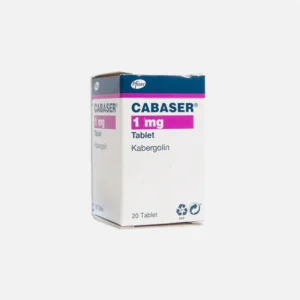Clomid, known generically as clomiphene citrate, is a medication widely used in the field of reproductive medicine to treat infertility, particularly in women who have difficulty ovulating. Developed in the 1960s, Clomid has become one of the most commonly prescribed fertility drugs due to its effectiveness and relative safety.
Mechanism of Action
Clomid functions as a selective estrogen receptor modulator (SERM). It works by blocking estrogen receptors in the hypothalamus, which tricks the brain into perceiving low estrogen levels. This perception stimulates the release of gonadotropin-releasing hormone (GnRH), leading to increased production of follicle-stimulating hormone (FSH) and luteinizing hormone (LH) from the pituitary gland. These hormones play crucial roles in the development of ovarian follicles and the triggering of ovulation.
Indications
Clomid is primarily indicated for:
- Ovulatory Dysfunction: It is commonly prescribed for women with conditions such as:
- Polycystic Ovary Syndrome (PCOS): A hormonal disorder causing irregular ovulation.
- Hypothalamic Amenorrhea: A condition where the hypothalamus fails to produce hormones that stimulate ovulation.
- Unexplained Infertility: Clomid may also be used when no specific cause of infertility has been identified.
- Male Infertility: Off-label, Clomid is sometimes prescribed to men to boost testosterone levels and improve sperm production.
Dosage and Administration
Clomid is typically taken orally in tablet form, with a standard starting dose of 50 mg per day for five days, beginning on the fifth day of the menstrual cycle. If ovulation does not occur, the dosage may be increased in subsequent cycles. Treatment is usually limited to a maximum of six cycles to minimize the risk of ovarian hyperstimulation syndrome (OHSS) and multiple pregnancies.
Benefits
- Effective Ovulation Induction: Clomid has been shown to effectively induce ovulation in about 70-80% of women using it, with many achieving pregnancy within a few cycles.
- Non-Invasive: Clomid is taken orally and does not require invasive procedures, making it a more convenient option for many women compared to other fertility treatments.
- Cost-Effective: Compared to assisted reproductive technologies like IVF, Clomid is significantly less expensive.
Side Effects
While it is generally well-tolerated, it can cause some side effects, including:
- Hot Flashes: A common symptom due to its estrogen-blocking action.
- Mood Swings: Some women report changes in mood or emotional well-being.
- Ovarian Hyperstimulation Syndrome (OHSS): A serious but rare condition that can occur with excessive stimulation of the ovaries.
- Visual Disturbances: Blurred vision or other visual changes can occur, although these are usually temporary.
Contraindications and Precautions
It is contraindicated in women who are already pregnant, have liver disease, or have a history of hormone-sensitive cancers. Women with ovarian cysts or enlarged ovaries should also avoid it. Regular monitoring through blood tests and ultrasounds is recommended to track response to treatment and minimize complications.
Conclusion
It remains a cornerstone in the treatment of female infertility, particularly for those experiencing ovulatory dysfunction. Its effectiveness, convenience, and cost-effectiveness make it a preferred choice among healthcare providers. However, as with any medication, a thorough understanding of its benefits and potential risks is essential for optimizing treatment outcomes.







Reviews
There are no reviews yet